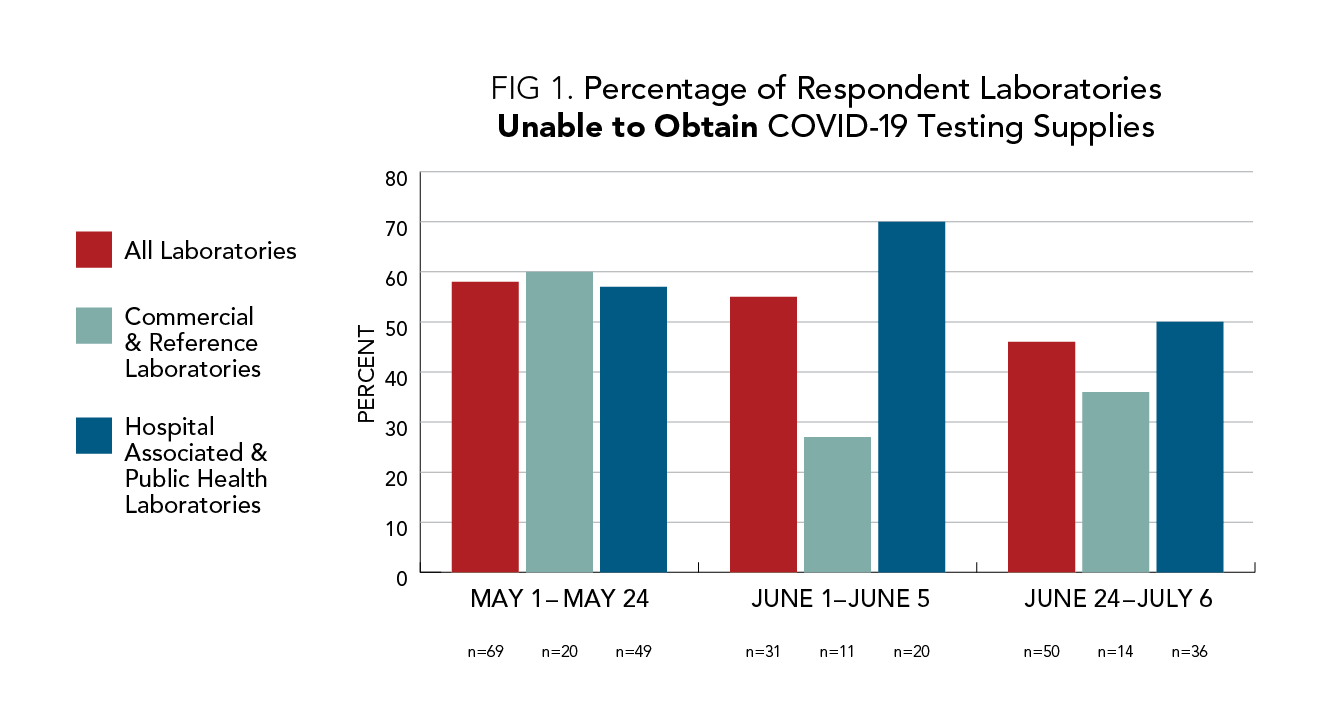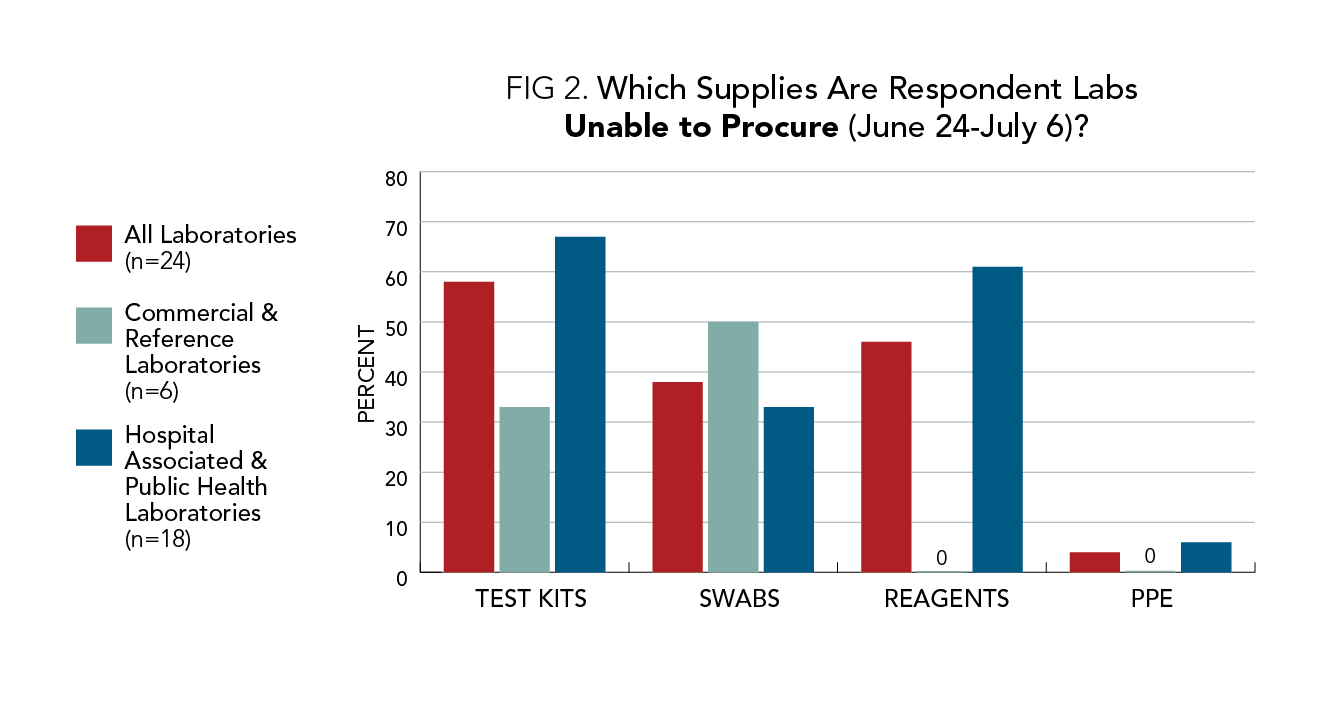Since COVID-19 reached the U.S., the Association for Diagnostics & Laboratory Medicine’s (formerly AACC) members—who are lab experts on the frontlines of testing for the virus—have reported that persistent shortages of essential supplies are hindering labs from reaching their full testing capacity for COVID-19. In response to these concerns, the Association for Diagnostics & Laboratory Medicine (ADLM) is conducting an ongoing study to determine the full extent of these supply shortages and how they are changing as the pandemic progresses, in the hopes that this data can help inform a potential solution.
For the study, ADLM has so far surveyed clinical labs worldwide about this issue during four different time periods: May 1-24, June 1-5, June 24-July 6, and August 3-18. The results show a troubling trend—namely, that more than half of all responding labs still do not have the supplies they need to run COVID-19 tests.
Additionally, the August iteration of the survey found that, for U.S. labs:
- 67% of all responding labs are having issues getting both reagents and test kits for COVID-19 testing, which is the highest this figure has been since ADLM began surveying labs in May.
- 28% of responding labs offering COVID-19 testing expect to be unable to process all requested COVID-19 tests within the week after they were surveyed because of supply issues and challenges. This is up from 25% of labs facing this issue in late June/early July and 21% of labs struggling with this in May.
- 32% of responding labs are now having trouble getting supplies for non-COVID-19 tests, which is up from only 12% of labs having this issue in late June/early July.
- After supply shortages, staffing is the 2nd biggest challenge for labs performing COVID-19 testing, with 58% of responding labs reporting issues with this.
Explore the full survey results
ADLM is continuing to collect data on this issue and will regularly update the information on this page to reflect the evolving nature of the COVID-19 crisis, as well as ADLM’s latest efforts to use this data to shape the direction of public policy.
July Survey Results
On July 28, ADLM presented the following findings to the White House Coronavirus Task Force in a letter that called on the federal government to take a more active role in alleviating COVID-19 testing supply shortages:

Figure 1: As of July 6, 46% of all responding labs were still unable to obtain COVID-19 testing supplies (a number that has gone up to 52% of responding labs in August). As shown in the figure above, 69 labs answered this question during the May 1-24 period; 31 labs answered from June 1-5; and 50 labs answered from June 24-July 6.

Figure 2: In July, COVID-19 test kits and reagents (the chemicals used to perform these tests) were the supplies that labs were having the most difficulty procuring—a problem that has only worsened in August. As shown in the figure above, 24 labs responded to this question during the June 24-July 6 period.
Participate in the Survey
If your laboratory would like to participate in ADLM’s future COVID-19 testing surveys, please contact Caitlin Ondracek, PhD, ADLM Associate Director of Science and Practice Programs, at [email protected].
You are also welcome to send any feedback on the survey to Dr. Ondracek.
More About the Survey
ADLM has partnered on this project with Edgeworth Analytics, a leading data analytics firm of PhD economists who use proven methods of gathering, structuring, and analyzing data to make results accessible and maximize insights.
Participants in the survey include laboratory directors among ADLM’s membership as well as participants in ADLM’s COVID-19 Testing Directory, and they represent both hospital/public health labs and commercial/reference labs.
In the U.S., during the May 1-24 period, 100 labs responded to the full survey; during the June 1-5 period, 33 labs responded; during the June 24-July 6 period, 53 labs responded; and during the August 3-18 period, 67 labs responded.
Collected laboratory information is not associated with specific contact information and participants were allowed to opt out at any point.